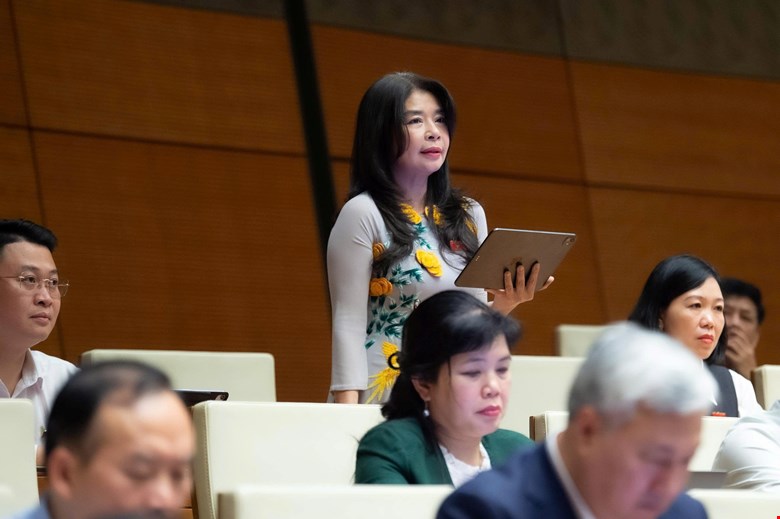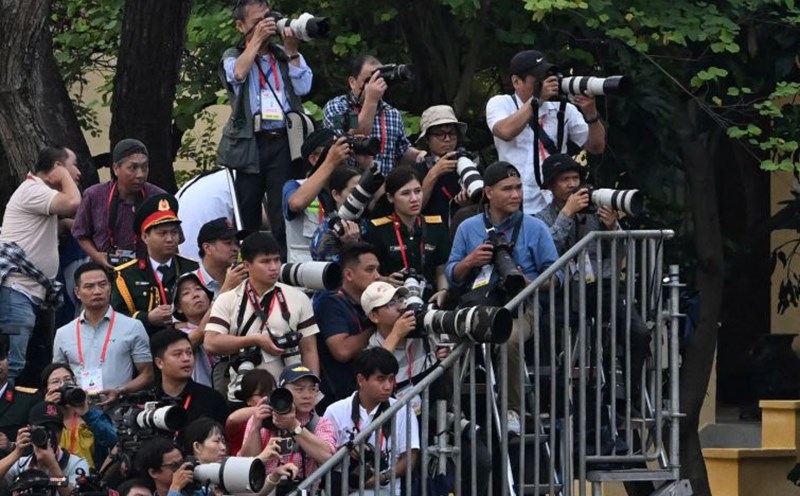Social networks set wrong titles, cut and distort the original content of the press
On the afternoon of November 24, the National Assembly discussed in the hall the draft Press Law (amended).
Delegate Trinh Thi Tu Anh (Lam Dong Delegation) said that in the context of the strong development of artificial intelligence and social networking platforms, there is currently a situation where a part of the organization and individuals who are not press agencies continuously cited and reposted content from official articles.
However, these social networking sites have posted false titles, cutting and seriously distorting original content to attract interaction and advertising revenue, which has been directly threatening the professional journalism economic model through two main mechanisms.
First, the value of the content is lost. The delegate said that non- press agencies and individuals are "free consultation" with in-depth analysis articles and investigative reports with high production costs for mainstream press.
Using incorrect and sensational titles to attract views makes readers no longer motivated to spend money on original content, seriously reducing revenue from the fee collection model.
Second, the loss of advertising revenue due to algorithms. Digital platforms tend to prioritize displaying strong emotional content, causing the content of professional and balanced journalism to be overshadowed.
As a result, automatic advertising revenue is shifted from responsible press agencies (where quality content is produced) to highly interactive viewing channels, eroding the financial resources to maintain professional journalism.
Therefore, the delegate suggested that the National Assembly consider adding regulations on the related rights of press agencies in cyberspace and assigning the Government to study negotiation mechanisms and share revenue between press agencies and large digital platforms according to the principle that they have been successful in the EU, Australia, and Canada.
This regulation does not limit people's freedom of speech, but only aims to protect the right to intellectual property and related rights of press agencies - entities that have spent large sums of money to produce responsible information, verified in accordance with the provisions of the Press Law.
The addition of the above regulation will contribute significantly to protecting professional journalism, protecting the jobs of genuine journalists and maintaining a healthy information orientation in the digital age.
Resolutely handle the status of journalism on social networks, social networks socialize journalism
Delegate Le Thu Ha (Lao Cai Delegation) said that we are living in an era where information has become a factor shaping power. From newsletters, images or algorithms, all can operate deeply to social awareness and national security.
Therefore, this amendment to the Press Law is of special importance to protect the truth, protect the people's trust and maintain national right to information.

To improve the draft, delegates raised issues, fake news, thrilling content and especially outstanding cross-border platforms in terms of speed, algorithms and revenue.
In that context, professional journalism not only needs space for activities but also needs an institution and a strong enough legal framework to protect and promote its role as public opinion orientation. To do this, according to the delegate, Article 3 explains the term as a key point.
"It is necessary to carefully implement the concept of "Information products of a journalism nature" in the draft. While this is the basis for managing the million-channel ecosystem of individuals operating as press agencies, some channels even have more influence than newspapers, said delegate Le Thu Ha.
The Lao Cai delegate also proposed adding 3 identification criteria including: Periodic calculation to distinguish between random content; Reflection and commentary ability to recognize the nature of journalism; Purpose of providing information to the public to distinguish personal communication content.
Without these criteria, we cannot completely handle the situation of Social network reporting and ts socializing the press that are disrupting information, said the delegate.











